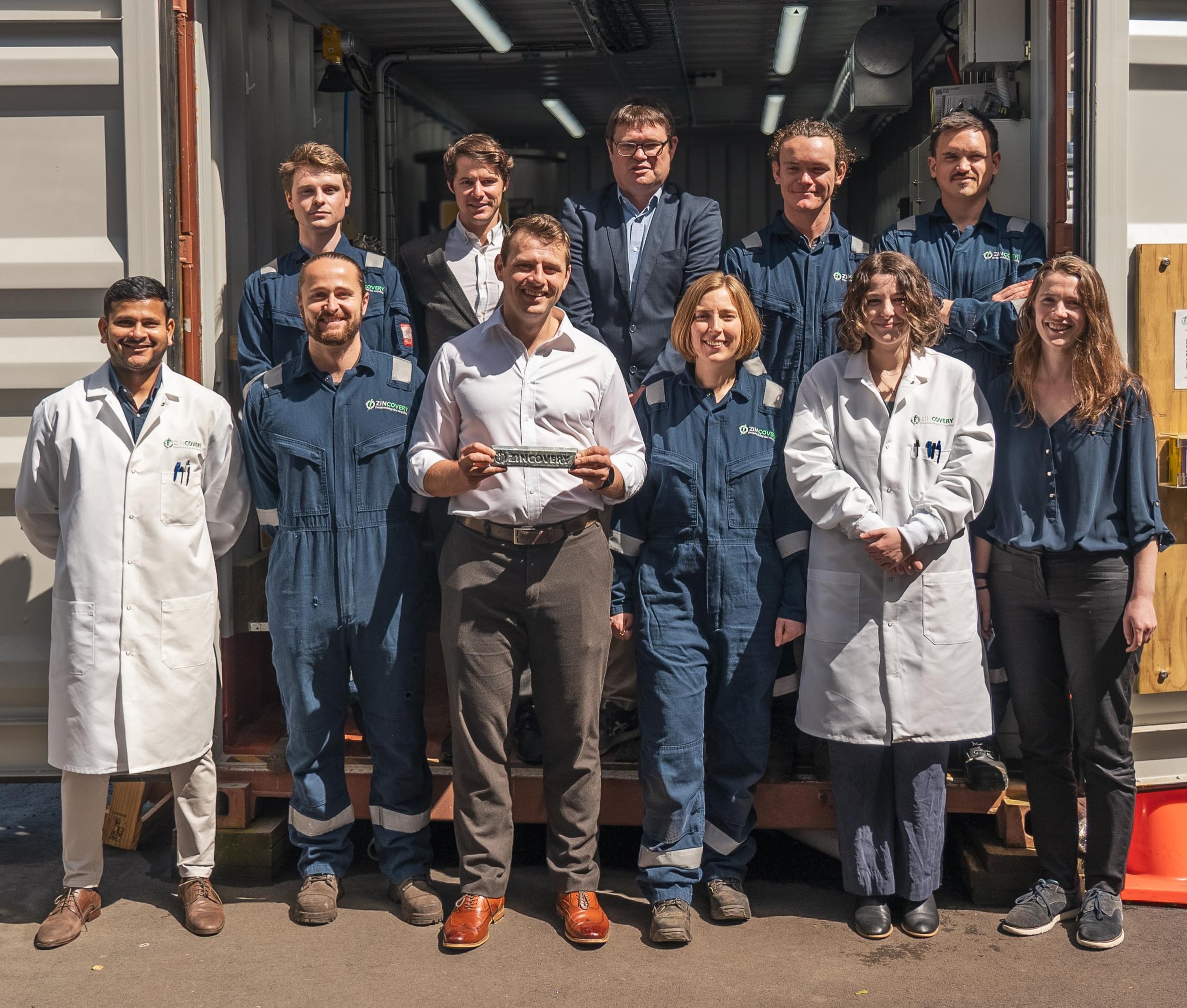Resupplying the chain
Meet the makers at a Christchurch start-up gaining recognition in taking on a global challenge – industrial waste.
Currently, the steel fabrication industry recycles only half of the zinc it uses for galvanisation, with the rest going to landfill. Even the recycled portion undergoes a carbon-heavy and wasteful process. So, what’s the answer? How do we create a sustainable supply chain for one of the Earth’s most essential minerals?
When chemistry student Jonathan Ring and his master’s supervisor, Dr Aaron Marshall, discovered how much of that waste was leaching into the environment, they decided to act, founding Zincovery. This groundbreaking solution is designed to recover heavy metals like zinc and achieve recycling far more efficiently.
With support from KiwiNet and mentorship from ThincLab, a founder-led business incubator at the University of Canterbury Business School, they devised a plan to take their innovative technology global.
Their efforts were bolstered by financial support from the university and a $1 million seed round from both local angel and offshore investors. Jonathan Ring continued to refine the business during the summer entrepreneurship programme at the University of Canterbury Centre for Entrepreneurship, working closely with local mentors.
“The typical way to recycle is to mix the dust with coal, burn the coal and the dust at very high temperatures, and boil the zinc out of the dust, creating an ore that then has to be sent to a zinc refinery for further purification. It’s a very energy-intensive, high carbon-emission, and disjointed supply chain,” explains Leatham Landon-Lane, VP of Business Development at Zincovery.
With these challenges in mind, the team sought to identify the sources of costs and emissions, aiming to find innovative ways to improve and develop the necessary technology to unlock those efficiencies. They discovered a method to use hydrogen at much lower temperatures, resulting in no direct carbon emissions and significantly reduced energy demand. This process makes zinc soluble, allowing it to be dissolved and purified more sustainably.
Zincovery swiftly gained recognition, surpassing 140 other entrants to claim the prestigious 2020 C-Prize competition. Sponsored by Callaghan Innovation, the event rewards ambitious innovators who address environmental challenges. In addition to the $100,000 prize, the competition opened avenues to accelerate the commercialisation of Zincovery’s technology.
Zincovery’s primary market is to sell reclaimed zinc back to the very firms producing the waste, including companies in Christchurch. “Sixty per cent of all zinc is used for galvanising, and the largest galvanisers in the world are steel mills. We also sell to zinc alloy producers. We’ve got commercial agreements with local firm AW Fraser and a European zinc alloy producer as well,” explains Leathem.
“The upshot is no direct carbon emissions, significantly lower energy demand, and the ability to shorten the supply chain. We’re working on projects where we can take the dust from a steel mill, recycle it into zinc metal on-site, and sell it back to the steel mills.”
Looking to the future, Zincovery has set its sights on global expansion. “The market for zinc dust recycling is worth $10 billion globally. It’s a huge opportunity,” says Leathem. The team remains optimistic about their prospects, citing Christchurch as an ideal launching pad for collaboration and innovation. By turning waste into valuable resources, Zincovery exemplifies the transformative potential of sustainable innovation and is paving the way for a greener, more efficient future in the zinc industry.



